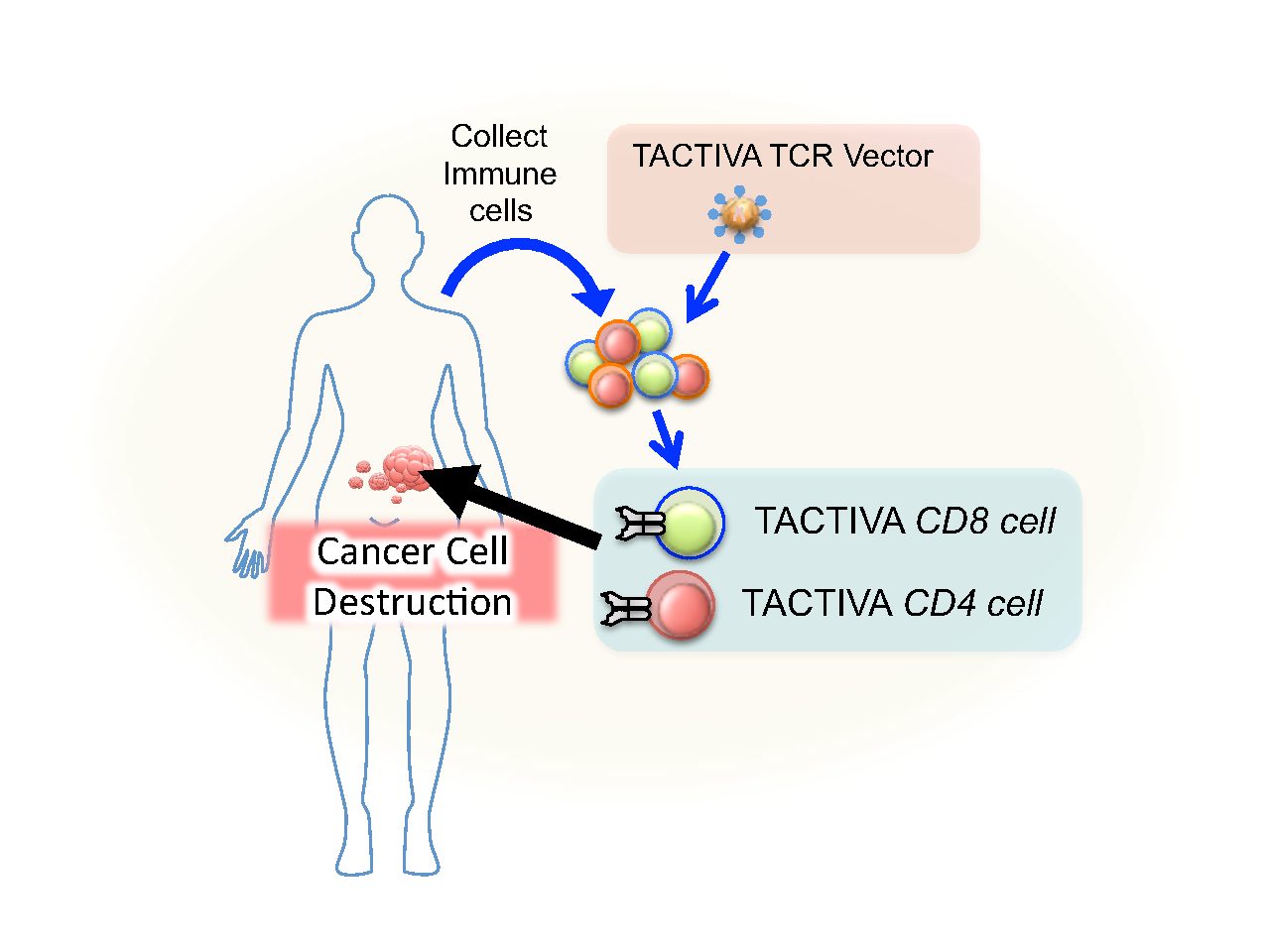What is Immunotherapy for Cancer Treatment?
Activating the Immune System to Recognize and Fight Cancer
The Advantages of Immunotherapy:
- Power to specifically target cancer
- Possibility for long-term remissions
- Ability to work on many types of cancer – even some that do not respond to chemotherapy or radiation
What is Adoptive Cell Therapy (ACT)?
Adoptive Cell Transfer (ACT) is a form of immunotherapy that targets tumors specifically and potently by utilizing large numbers of a patient’s own immune cells to target and destroy cancer cells. Typically, starting with a few immune cells derived from the patient’s blood, billions of cancer fighting immune cells are manufactured in a special facility, and given back to the patient, almost like a blood transfusion.

The Tactiva approach.
- A combination of a unique class of lethal CD4-TCRs derived from hematopoietic stem cells (HSCs) and mature CD8-TCRs targeting solid tumors expressing NY-ESO-1 – NY-ESO-1 is an immunogenic cancer-testis antigen (CTA) associated with spontaneous and vaccine-induced immunity that can lead to clinical cancer responses.
- An initial payload of CD8 cells breaks down the tumor, and the HSC-derived CD4 cleans up the remaining cells and acts as protection against the recurrence of any cancer cells expressing NY-ESO-1.
